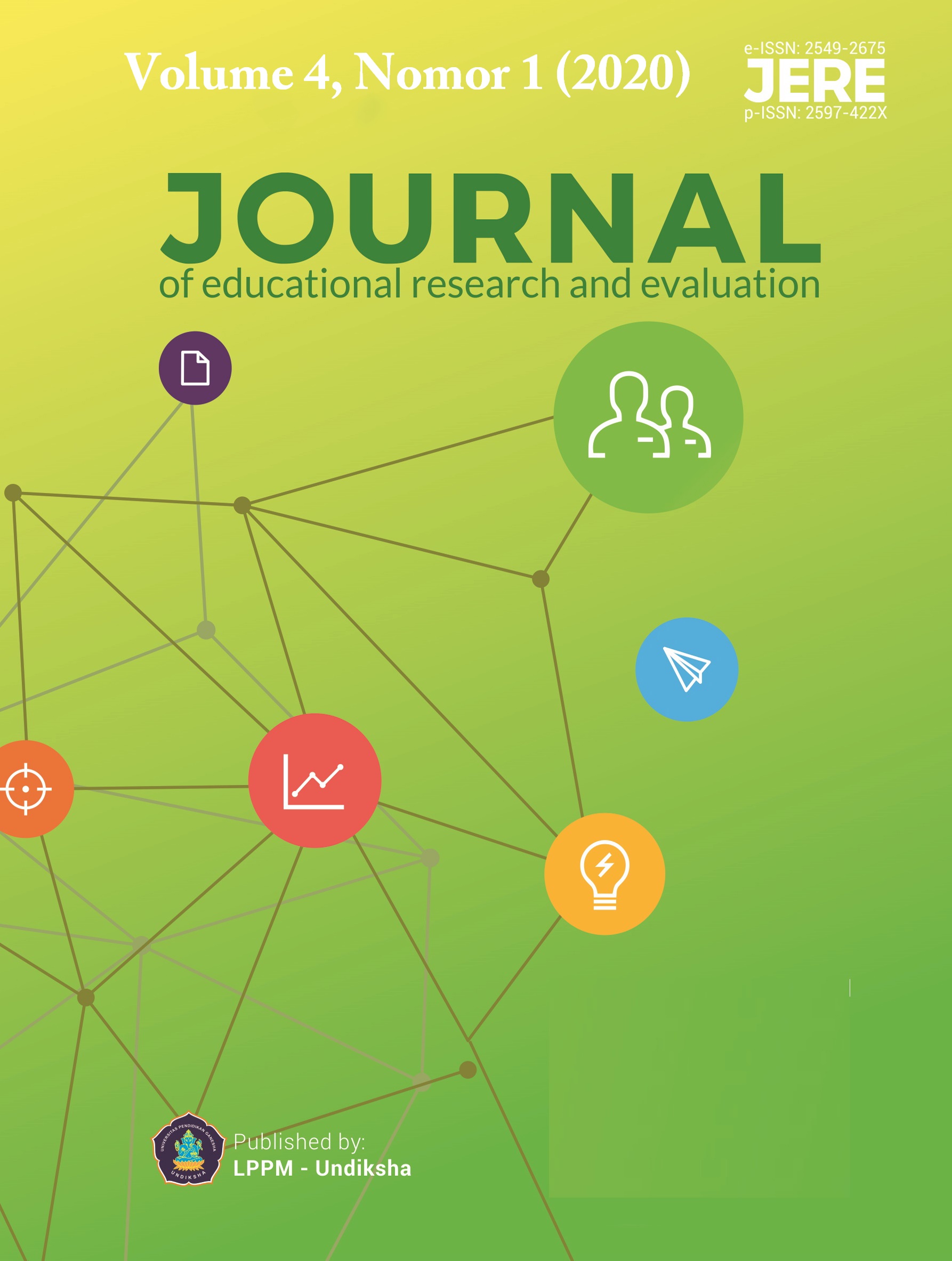The Model of Strategies Employed by English Teachers in Teaching Writing Skill in National Plus Schools
DOI:
https://doi.org/10.23887/jere.v4i1.23682Keywords:
Strategy, Teaching, WritingAbstract
In teaching writing, there are number of strategies that can be used. This study was intended to explore (1) the teaching writing strategies used by the teacher, (2) the differences in teaching, and (3) the problems encountered by the English teacher in teaching writing skill. This study was a descriptive qualitative study. Teachers from Bintang Mandiri and Widyatmika Junior High Schools were involved as the informant of the study. They were observed during the teaching and learning process and also interviewed. The data taken from observation and interview were analyzed in order to find out the answer the research questions. It was identified that In Bintang Mandiri the teacher used 1 more teaching writing strategy namely creative writing while in Widyatmika, creative writing was not identified. There were three main problems identified from the teachers. The first was students’ difficulties in expressing ideas in English. The second problem was students’ grammar. The third was students’ passiveness in classroom. Suggestions and implications are furtherly discussed.
References
Alfaki, I. (2015). University Students’ English Writing Problems: Diagnosis and Remedy. International Journal of English Language Teaching, 3(3), 40-52.
Ariyanti, A. and Fitriana, R. (2017). EFL Students’ Difficulties and Needs in Essay Writing. Advances in Social Science, Education and Humanities Research (ASSEHR), volume 158 International Conference on Teacher Training and Education 2017 (ICTTE 2017)
Brown, H. D. (2000). Teaching by Principles (2nd Edition ed.). San Francisco: Longman.
Jurianto, Salimah, and Kwary, A. (2015). Strategies For Teaching Writing in EFL Class at A Senior High School in Indonesia. CELT, 15(1). 1-10.
Kestha. A., S. & Harb., I., I. (2013). The Effectiveness of Blended Learning Program on Developing Palestinian Tenth Graders' English Writing Skills. Educational Journal. 2(6), 208-221.
Miles, M and Huberman, A. (1994). Qualitative Data Analysis. London: Sage Pub.
Rahmatunisa, W. (2014). Problems Faced by Indonesian EFL Learners in Writing Argumentative Essay. English Review: Journal of English Education, 3(1), 1-9.
Rao, T. (2007) 'Training in brainstorming and developing writing skills. ELT Journal, 61(2), 100-106.
Reiser, L. J. (2002). Professional development and other factors that contribute to the ability to integrate technology into curriculum. Journal of Educational Technology Systems, 30(4), 437-460.
Walsh, K. (2010). The importance of writing skills: Online tools to encourage success. Retrieved June 27th, 2019, from http://www.emergingedtech.com/2010/11/the-|importance-of-writing-skills-online-tools-to-encourage-success/
Younes, Z. and Albalawi, F. (2015). Exploring the Most Common Types of Writing Problems Among English Language and Translation Major Sophomore Female Students at Tabuk University. Asian Journal of Basic and Applied Sciences, 3(2), 7-26.
Zemach, E., & Islam, C. (2005). Paragraph Writing. Macmillan: Macmillan Publisher Limited
Downloads
Published
How to Cite
Issue
Section
License
Authors who publish with the Journal of Evaluation and Research in Education (JERE) agree to the following terms:
- Authors retain copyright and grant the journal the right of first publication with the work simultaneously licensed under a Creative Commons Attribution License (CC BY-SA 4.0) that allows others to share the work with an acknowledgment of the work's authorship and initial publication in this journal.
- Authors are able to enter into separate, additional contractual arrangements for the non-exclusive distribution of the journal's published version of the work (e.g., post it to an institutional repository or publish it in a book), with an acknowledgment of its initial publication in this journal.
- Authors are permitted and encouraged to post their work online (e.g., in institutional repositories or on their website) prior to and during the submission process, as it can lead to productive exchanges, as well as earlier and greater citation of published work. (See The Effect of Open Access)











